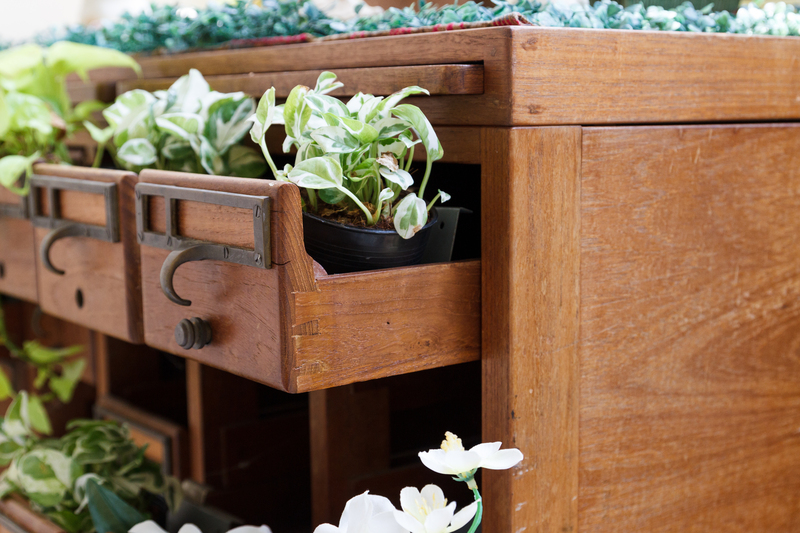Cutting Down Costs on Your Next Bulky Waste Cleanout
If you've ever looked around your garage, basement, or backyard and wondered how you managed to accumulate so much bulky waste, you're not alone. Bulky junk like old furniture, broken appliances, and construction debris can quickly pile up, turning neat spaces into cluttered headaches. But more than space, disposing of bulky waste can also turn into an expensive ordeal if not handled smartly.
This comprehensive guide will walk you through cost-saving strategies for bulky waste cleanout. Whether you're renovating your home, preparing for a major move, or simply decluttering, we'll highlight the best practices for cutting down costs and maximizing the value of your next bulky waste disposal project.
Table of Contents
- Understanding Bulky Waste
- Why Does Bulky Waste Cleanout Cost So Much?
- Tips for Cutting Down Bulky Waste Cleanout Costs
- Budget-Friendly Bulky Waste Disposal Options
- The Role of Community Recycling and Donation
- How to Maximize Your Returns on Bulk Trash
- Mistakes to Avoid for Cost-Effective Heavy Waste Cleanout
- Frequently Asked Questions
- Final Takeaways
Understanding Bulky Waste
Before you embark on your low-cost bulky waste cleanout, it's helpful to know what counts as bulky waste. Typically, these are large household or garden items that do not fit into standard bin collections. Examples include:
- Furniture: sofas, beds, wardrobes, dining tables
- Appliances: refrigerators, ovens, washing machines, air conditioners
- Mattresses and box springs
- Carpets and rugs
- Fixtures: doors, bathtubs, large light fixtures
- Construction waste: drywall, wood, tiles
- Outdoor items: garden sheds, grills, patio furniture
Because these items are heavy, awkward, and often not suitable for curbside pickup, most municipalities charge extra or require special arrangements for their removal. This is where the costs can add up quickly.
Why Does Bulky Waste Cleanout Cost So Much?
The price tag for removing bulky items can be steep. Here's why:
- Special Equipment & Labor: Bulky waste often requires a truck and a team for safe lifting, loading, and transportation.
- Disposal Fees: Landfills and recycling centers charge by item, weight, or volume. Heavy or non-recyclable items cost more to dump.
- Regulations & Permits: Certain waste types (like refrigerators or electronics) need additional processing due to environmental rules.
- Lack of Efficient Planning: Last-minute or unsorted cleanouts often lead to higher quotes from junk removal services.
However, with strategic planning, you can slash these costs significantly, turning a dreaded chore into an efficient, low-cost project.
Tips for Cutting Down Bulky Waste Cleanout Costs
1. Plan Ahead and Assess Your Bulky Waste
- Make an inventory of every item you need to dispose of.
- Identify which items may need special disposal or could fetch value if sold or donated.
- Grouping similar items together can help estimate overall size and choose the optimal disposal method.
2. Sort Items for Reuse, Recycling, or Donation
- Separate out anything reusable such as furniture, appliances, or fixtures that are in decent condition.
- Contact local charities or secondhand stores--many will pick up large items for free, saving you on transportation and landfill fees.
- Recycle where possible: Metals, electronics, and some plastics can often be taken to community recycling centers at a lower cost.
3. Break Down Large Items Yourself
Smaller items cost less to dispose of. Disassemble beds, tables, and cabinets; remove legs and arms from sofas; cut up carpets or rugs.
- This reduces paid labor and allows you to fit more into a vehicle if self-hauling.
- Pieces are often easier to recycle than whole items.
4. Schedule Bulky Waste Pickup During Community Cleanout Days
- Check your city's website for annual or seasonal free bulk item pickups.
- Booking on these dates can mean you pay little or nothing for removal.
5. Get Quotes from Multiple Junk Removal Services
- Always compare at least three junk removal companies in your area.
- Some charge by truckload, others by item--find what makes sense for your pile.
- Ask about discounts for single-category loads (all furniture, all appliances, etc.).
6. Pool Resources with Neighbors
- Organize a group cleanout in your neighborhood or apartment building.
- Renting a dumpster or hiring a junk service together can lower per-household costs.
7. Consider Renting a Dumpster for Bulky Waste
- For a major declutter or renovation, dumpsters are cost-effective for high volumes.
- Choose the right size; a half-full large dumpster is money wasted.
- Always read the contract: Extra fees for prohibited items, overweight loads, or extended rentals.
8. Use Municipal Drop-Off Centers
- Check for free or low-fee disposal days at city waste transfer stations.
- Bring proof of residency--many centers serve only local households.
Budget-Friendly Bulky Waste Disposal Options
DIY Hauling and Self-Disposal
If you have access to a pickup truck or trailer, self-hauling is often the cheapest option for a bulky item cleanout. Take your load to the local landfill or recycling center, where you'll likely be charged by the ton or item weight. Be sure to ask about:
- Accepted items and materials
- Resident vs non-resident pricing
- Hazardous waste restrictions
Don't forget to practice safe loading techniques and follow local traffic laws when transporting large loads!
Hiring a Junk Removal Company: How to Save
- Book early--Avoid peak weekends when prices can surge.
- Be upfront about the load; extra, unlisted pieces often cost more on pickup day.
- Ask for a bundled price if you have multiple bulky items.
- Look for online coupons, loyalty programs, or referrals for discounts.
Dumpster Bag Services
Brands like Bagster provide heavy-duty bags for DIY filling and scheduled pickups at a fixed price. These work well for moderate loads that are too big for curbside but don't justify a roll-off dumpster.
The Role of Community Recycling and Donation Programs
One of the smartest ways for reducing bulky waste cleanout costs is to tap into local recycling and donation programs. Many municipalities and nonprofits offer:
- Appliance recycling (often for free)
- Used furniture pickup and repurposing
- Scrap metal buyback or drop-off events
- Seasonal electronics recycling days
Beyond savings, these programs help your community by keeping useful items out of landfills and supporting those in need.
How to Maximize Your Returns on Bulk Trash
- Advertise on online marketplaces (Craigslist, Facebook Marketplace, OfferUp) to sell or give away bulky items--plenty of people can repurpose your old furniture or appliances.
- Hold a garage sale before your bulk waste cleanout--often you'll find willing buyers, and you might be surprised at what people will pay for.
- Scrap metal can generate some revenue: separate and bring metals to a scrap yard for cash.
- Partner with local charities--If they collect items for free, ask for a tax donation receipt.
Mistakes to Avoid for a Cost-Effective Heavy Waste Cleanout
- Waiting until the last minute: Emergency pickups or weekend surges often carry premium rates.
- Not checking what your city offers for free: These services can save hundreds of dollars.
- Mixing hazardous with bulky waste: This can result in fines or refusal of service. Always check regulations on paint, chemicals, and electronics.
- Underestimating volume: Getting too small a dumpster or pickup plan leads to extra trips and costs.
- Ignoring safety: Overloading vehicles or improper lifting risks injury and added expense.
Frequently Asked Questions
Is it cheaper to rent a dumpster or hire a junk removal service for bulky items?
It depends on the volume and type of items. Renting a dumpster is generally better for large projects or ongoing renovations, where you're loading waste gradually. Junk removal services are ideal for quick, one-time pickups of big items or for people who need loading help. For small piles, self-hauling usually wins on price.
Are there free options for bulky item disposal?
Yes! Many municipalities offer occasional free bulky waste collections or permits for free drop-off. Local donation centers often collect usable goods. Always check your city or county website for up-to-date programs.
What items are illegal to put in a dumpster or landfill?
Most areas ban electronics, paint, chemicals, car batteries, tires, and certain appliances (like those containing refrigerants or hazardous materials). Improper dumping can result in fines--always clarify with your chosen service.
Final Takeaways: Your Roadmap to Cheap Bulky Waste Cleanouts
- Plan ahead and sort all items to maximize reuse, recycling, or donation potential.
- Break down & disassemble everything possible to save on volume and labor costs.
- Leverage community services and group cleanouts for the lowest possible prices.
- Always get multiple quotes--and don't forget about peer-to-peer selling for extra value.
With these cost-cutting tips for bulky waste cleanout, your next decluttering project doesn't have to break the bank. Remember, saving money on large junk removal is about smart planning, using local resources, and doing a bit of the heavy lifting (sometimes literally) yourself. Happy decluttering!

